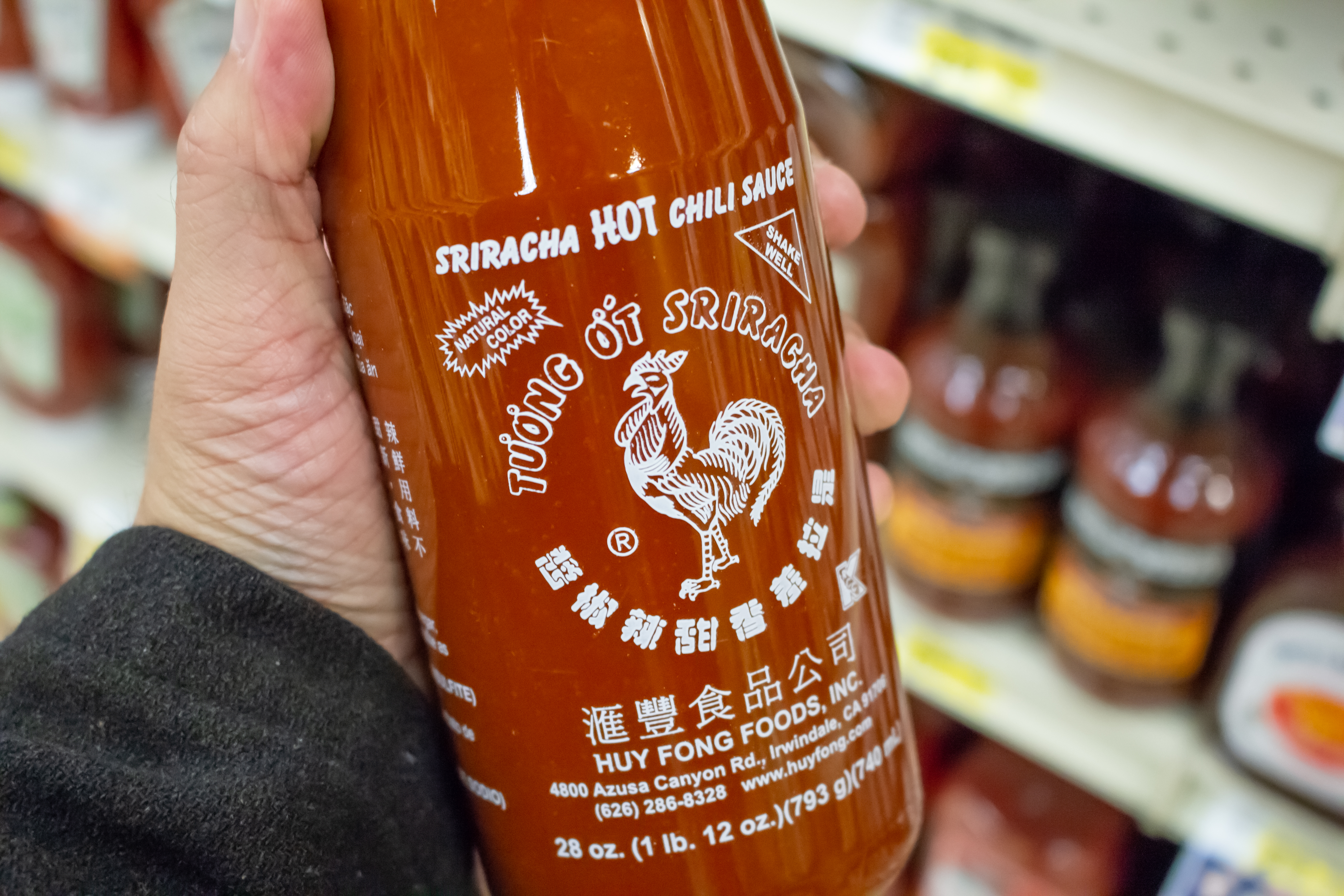Share This Article
It is reported that nearly 500kg of methylamphetamine worth $300m has been imported in 768 bottles of Sriracha chilli sauce.
The ice was under the Australian Border Force (ABF) radar when it arrived in Australia from the US on 15 October.
Upon arrival into Australia, the consignment was reported to have been allegedly accessed at Wetherill Park by a 36-year-old man who police allege transported it to a storage facility in Minchinbury.
The 36-year-old man was subsequently arrested on 20 October in Plumpton.
Two men aged 30 and 34 have also been arrested in a Sydney CBD hotel car park, while a fourth man aged 45 was arrested following the execution of a search warrant in Edensor Park.
The men have now been charged with attempting to take possession of a commercial quantity of border-controlled drugs and supplying a large commercial quantity of drugs.
When the consignment was deconstructed, authorities noticed the 768 bottles of Sriracha chilli sauce containing what appear to be a crystalline substance across the rims.
A presumptive test revealed the substance to be methylamphetamine.
What led authorities to this lead?
It is reported that the NSW Organised Crime squad and the NSW Crime Commission investigated money laundering and the supply of drugs by what police allege is a Vietnamese criminal group conducting operations in Sydney.
These investigations then led to the interception of the 768 bottles of Sriracha chilli sauce.
Matt O’Connor of the ABF Acting Regional Commander has said, “our officers have seen drugs in all forms hidden in everything you can possibly imagine; from clothing, to future, machinery, electrical items, paint, and now we have chilli sauce.”
“They have gone to considerable effort to make the sauce appear to be sauce.”
O’Connor also commented, that the ice had been suspended within the sauce and was mixed up with ingredients in a “sophisticated” way requiring knowledge in chemistry.
While the men have been refused bail, the authorities are still investigating the source of the import.
The Penalties for Importing Drugs into Australia
In Australia, the penalties for importing a border-controlled drug generally depends on the quantity and type of drug.
Ice/methamphetamine, MDMA, Cannabis, Cocaine, Heroin are all considered to be a ‘border-controlled drug’ in Australia or also known as an illicit drug and is reflected in Clause 1 of Schedule 2 of the Criminal Code Regulations 2019 (Cth).
The maximum penalty for importing a commercial quantity of a border-controlled drug is life imprisonment and/or $1,575,000 fine according to section 307.1 Criminal Code Act 1995 (Cth).
The maximum penalty is 25-years imprisonment and/or $1,050,000 fine for importing a marketable quantity of this type of drug under section 307.2 Criminal Code Act 1995 (Cth).
Where the quantity is any other quantity other than the above two quantities of a border-controlled drug, the maximum penalty is 10-years imprisonment and/or $420,000 fine according to section 307.3 Criminal Code Act 1995 (Cth).
Methamphetamine threshold for marketable quantity is 250g, but less than 750g. It has a commercial quantity of 750g or more.
To be guilty of importing a border-controlled drug in Australia, the prosecution must first prove each of the following elements beyond reasonable doubt:
- The accused imported the drug; and
- The accused intended to do this; and
- The drug is a ‘border-controlled drug’; and
- The accused at the time of the import was aware that there was a significant or real chance that it was a border-controlled drug; and
- It was not justified to take the risk of importing it in the circumstances known to the accused at the time; and
- The accused took that risk regardless.
The charge of importing drugs will end up getting dismissed in court if the prosecution fails to prove any one or more of the above elements of this charge.
For a free consultation, contact our Sydney drug importation lawyers to discuss this topic further.
The below are some defences to a charge of importing drugs in Australia:
- Absence of knowledge that it was a border-controlled drug, or where the accused person believed there was a mere possibility it was a border-controlled drug.
- If there is a reasonable possibility that the accused wasn’t aware that it was a border-controlled drug.
- If the accused had no intention of importing it.
- If the alleged drug is not a ‘border-controlled drug’.
- If the accused person imported it under a duress or necessity.
Our criminal lawyers are based in Parramatta and Sydney CBD. Our team are available 24/7 on (02) 8606 2218.
Book a Lawyer Online
Make a booking to arrange a free consult today.
Call For Free Consultation
Call Now to Speak To a Criminal Defence Lawyer
Over 40 Years Combined Experience
Proven SuccessAustralia-Wide
Experienced LawyerGuarantee
 (02) 8606 2218
(02) 8606 2218
 (02) 8606 2218
(02) 8606 2218















